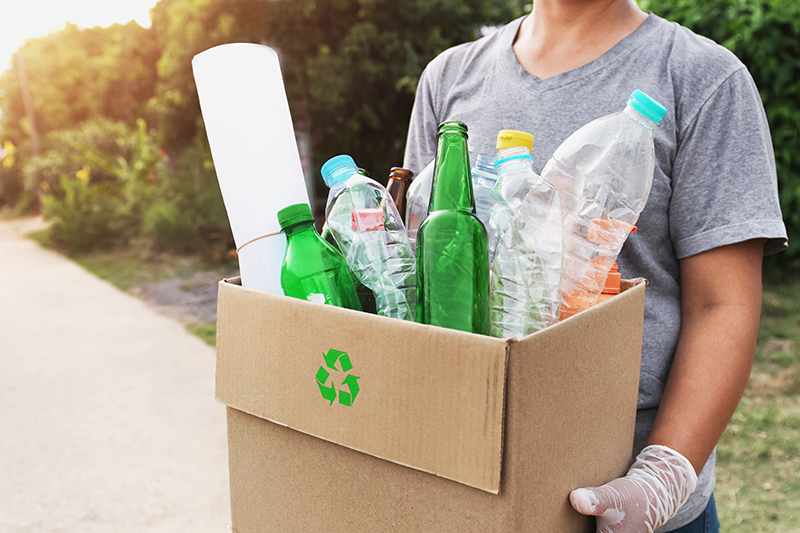During this crisis, we need to do everything we can to protect frontline workers who are making it possible for life to go on for the rest of us.
At the same time, we need to guard against corporate interests trying to use the crisis as leverage to win policies that could harm public health and the environment – policies that they have been unable to pass in normal times.
One example that just came to light is Casella Waste Systems’ proposal to start sending material that would normally be recycled (glass, metal, paper and plastic) to the Casella-owned landfill in Coventry. They also want to roll back a state ban on putting compostable food scraps in the waste stream.
Vermont passed its Universal Recycling Law in 2012, which banned recyclables from landfills beginning in 2015. Businesses generating large quantities of compostable material are already using systems to keep in out of the landfill. The ban on trashing residential food scraps is due take effect on July 1.
Casella and some other waste haulers have been pushing back on these environmental laws for years. But now they’re using the pandemic as the excuse to trash recycling.
To be clear, we know of no state that has decided to end its recycling programs during this health emergency. If recycling can still happen in a hot spot like New York City, why should Vermont turn its back on this important environmental program?
The proposal is not supported by local solid waste officials around the state, including the Chittenden Solid Waste District. Composting businesses that depend on a supply of organic material also want to keep the law intact, especially as many more Vermonters show an interest in backyard gardening.
We support giving sanitation workers all the protective equipment they need to be safe in their jobs. We urge the Department of Environmental Conservation and the Health Department to take a look at current waste and recycling collection practices, and issue guidance if necessary, to improves practices during this crisis.
But there is scant evidence to suggest that diverting recyclables or organic matter from the waste stream presents a greater risk than trashing it all together.
This is not the time for blanket rollbacks of important environmental laws in Vermont. If this health crisis demands enforcement discretion in a specific circumstance, our current laws can accommodate that already. Let’s make clear though, that Vermont is not like the EPA, which just granted major polluters blanket exemptions from federal environmental laws. Let’s keep recycling safe and available in Vermont.
>> Click here to add your name to our petition to keep recycling in Vermont.

